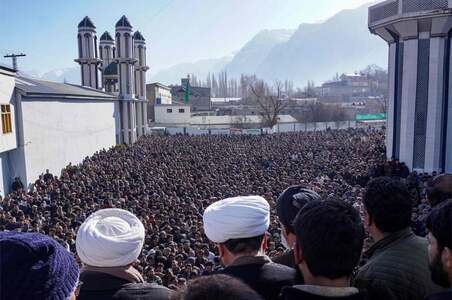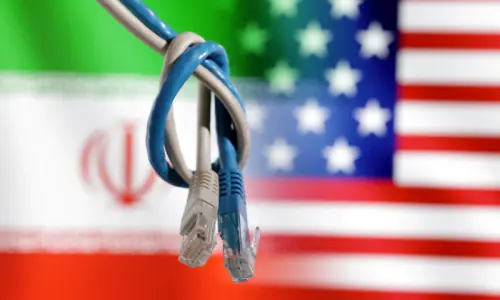UNITED NATIONS, Dec 12: A World PublicOpinion poll of 21 nations from around the world finds that people in every country favour an international agreement for eliminating all nuclear weapons, except in Pakistan where the majority favours retaining the nuclear weapon as a deterrent.
According to results of the poll announced on Friday, the nations with the largest numbers opposing the plan for the elimination of nuclear weapons are Pakistan (41 per cent), Israel (25 per cent), Azerbaijan (22 per cent), and the Palestinian Territories (22 per cent). Even in these countries, far fewer say they oppose the plan strongly. Strong opposition is only seven per cent on average, and in single digits in 17 of the 21 countries. The largest numbers strongly opposing elimination of nuclear weapons are in Pakistan (20 per cent), Azerbaijan (14 per cent), and Israel (12 per cent).
Another idea that has been proposed is to make the Middle East a zone free of nuclear weapons. Six of the actors needed for such a zone were polled (Israel, the Palestinian Territories, Egypt, Iran, Turkey and Azerbaijan) and the results bode well for the idea.
Strong majority support in the six nations for an agreement to eliminate all nuclear weapons ranges from a high of 83 per cent in Egypt to a low of 65 per cent in Turkey.
The poll reveals that in 20 of the 21 countries large majorities, ranging from 62 to 93 per cent, favour such an agreement. The only exception is Pakistan, where a plurality of 46 per cent favours the plan while 41 per cent oppose it.
All nations known to have nuclear weapons were included in the poll, except North Korea where public polling is not available.
Respondents were asked to consider an agreement that specified that “all countries with nuclear weapons would be required to eliminate them according to a timetable” while “all other countries would be required not to develop them”. Respondents were also told that all countries, including their own, “would be monitored to make sure they are following the agreement”.
On average 76 per cent favour such an agreement, with 50 per cent favouring it strongly. Sixteen per cent are opposed, with just seven per cent opposing strongly.
The idea of pursuing the elimination of nuclear weapons has gained increased visibility lately since a bipartisan group of four former US senior officials, George Schultz, Henry Kissinger, William Perry, and Sam Nunn published an article in 2007 titled “A World Free of Nuclear Weapons” endorsing the goal of eliminating nuclear weapons.
“Publics around the world show a remarkably high level of consensus in favour of pursuing a step-by-step plan for reducing and ultimately eliminating nuclear weapons,” comments Steven Kull, director of WorldPublicOpinion.org.
The poll of 19,142 respondents from the 21 countries was conducted between January 10 and August 29, 2008 by WorldPublicOpinion.org, a collaborative research project involving research centres from around the world and managed by the Programme on International Policy Attitudes (PIPA) at the University of Maryland. Margins of error range from +/- 2 to 4 percentage points. The study included all nations with nuclear weapons (except North Korea) and the following non-nuclear nations: Argentina, Azerbaijan, Egypt, Indonesia, Iran, Kenya, Mexico, Nigeria, the Palestinian territories, South Korea, Thailand, Turkey, and Ukraine.
In the five nations with large nuclear arsenals and advanced delivery systems, large majorities favour the plan for totally eliminating nuclear weapons according to a timeline – the United States (77 per cent), Russia (69 per cent), China (83 per cent), France (86 per cent), and Great Britain (81 per cent).
Only 20 per cent oppose this idea in the United States; 14 per cent in Russia and China; 12 per cent in France; and 17 per cent in Britain.
Two countries that have relatively recently acquired nuclear weapons show more tepid support. In India 62 per cent favour the idea with 20 per cent opposed, as does a plurality of 46 per cent in Pakistan (41 per cent opposed).
Israel is widely believed to have nuclear weapons, though it has not officially confirmed or denied its nuclear status. Two-thirds (67 per cent) of Israelis embrace the plan for elimination, even though it calls for intrusive monitoring, which would presumably reveal Israel’s nuclear programme. Twenty-five per cent of Israelis disagree.































